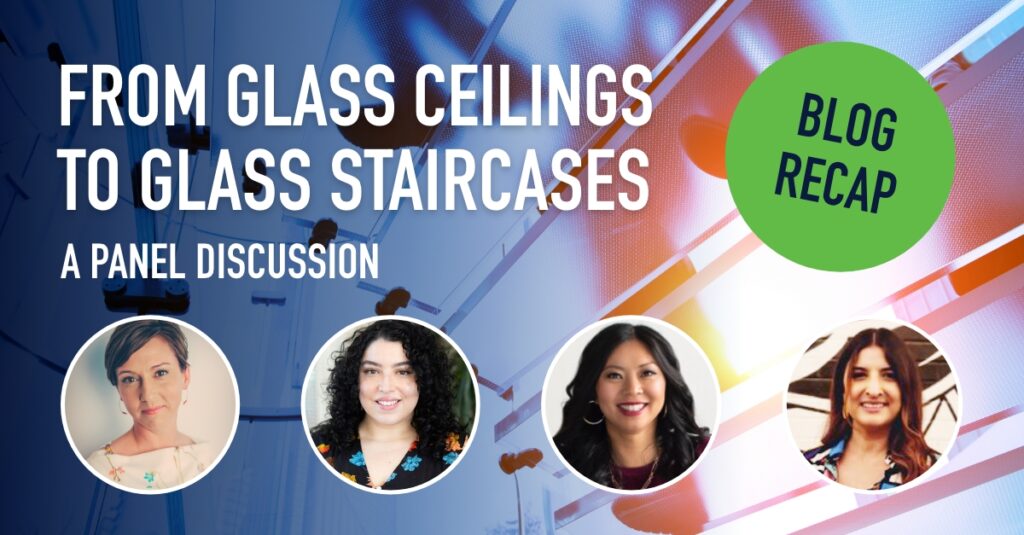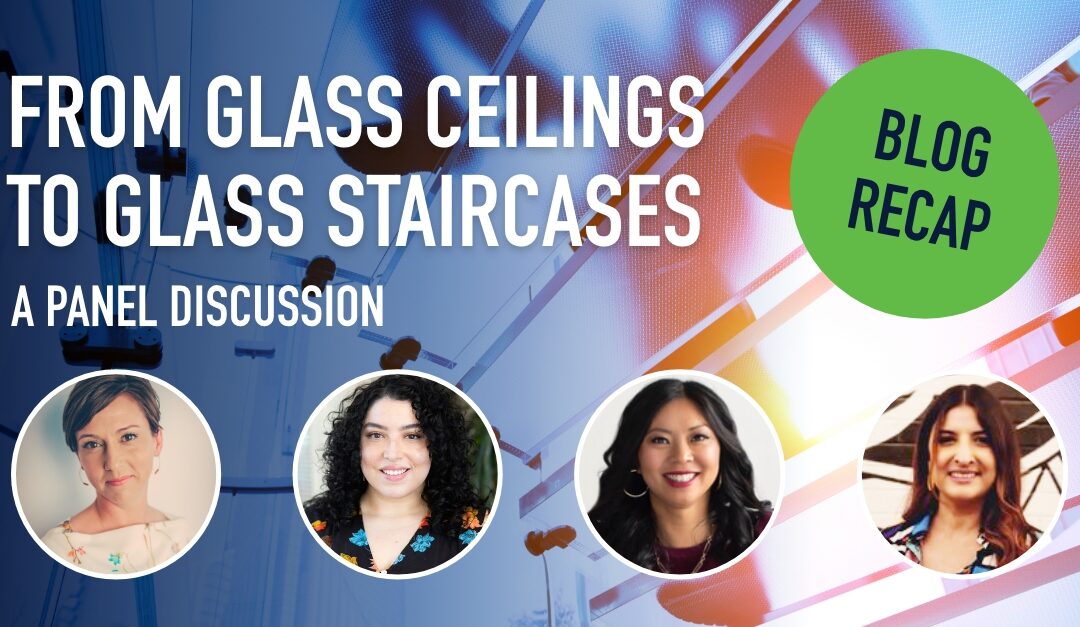A WCA@Lunch Program Recap

In honor of Women’s History Month, March’s WCA@Lunch program addressed a broad spectrum of issues surrounding how women can best promote and uplift other women.
Fabiana Meléndez Ruiz, WCA board member and director of marketing and communications at HEXAH, spearheaded the discussion. Joining her for this virtual program were Destinee Berman, co-founder of Future Digital; Ana Cristina Juarez,
marketing director with Girls Empowerment Network; and Jenny Magic, founder of Better Way to Say It.
Q: We hear the phrase “women supporting women” all the time, but what does that really mean?
For Magic, first, you need to gain an “understanding of that person’s definition of success” and then support that individual accordingly. Berman agreed and emphasized the importance of really listening and accepting that person’s position without imposing your own values or judgements. Juarez noted that at Girls Empowerment Network, this boils down to figuring out where that person is at and helping her “shine” there. As summed up by Melendez Ruiz, it comes down to supporting other women at their levels and needs.
- How do you support another woman at work, even if you don’t like or agree with that person?
Creating a psychologically safe environment where it is open, respectful, and okay to not agree is a must, which Magic believes the team leader needs to make happen. This also requires accepting that there will be conflict, noted Berman, who went on to add that if everyone comes from a place of openness and grace, they can work through the conflict and learn from it. Juarez related how the Girls Empowerment Network percept, “assume good intent,” helps build relationships of trust and openness. “Don’t be conflict-averse, but embrace conflict in a healthy way,” summarized Melendez Ruiz.
Responding to a question about what to do when you are observing a conflict turning nasty, particularly in a gender-biased situation, Magic acknowledged that sometimes you have to “let the awful thing sit.” This led to a further discussion about how men tend to fight it out and win-or-lose, move on; while women do not tend to meet conflict head-on, but rather tend to brood about the issue.
- How do you provide support at different career levels and a power imbalance?
Earlier in one’s career, you often have more time so by just “showing up” you can give support noted Magic. Berman uses slack groups and re-sharing or “liking” posts to help promote events or books via social channels; while Juarez makes a point of talking up and referring friends and colleagues as a means of letting them shine. Or, as Melendez Ruiz stated: “Empower yourself to empower others.”
As a way of encouraging other women to shine, Juarez also mentioned how during group meetings a supervisor would direct questions to another woman she knew that person could answer. Or, as Magic experienced, push them out on the stage and have them do a presentation. Support can also be given by just telling someone who is perhaps struggling in a new position that “you have a lot of potential and I know you can get there,” related Berman. Melendez Ruiz added that she herself had experienced the “power of second chances” which really uplifted her at the right moment.
- What is your favorite way to support and uplift other women?
For Berman, the answer came quickly – social media, where she sees the reach as unparalleled. Juarez sends LinkedIn recommendations, even when not asked, because she knows those words can be used in portfolios and other places as well. Magic takes a different approach by being brutally honest about her own failures, which lets others know it is okay to fail. She also promotes being super transparent, raising the point that information gatekeeping is really a power play. Several also agreed that snail mail, today, is almost “magical.”
Further discussion points included:
Responding to a question raised about ageism, Melendez Ruiz suggested that it requires redefining starting points and success. Stay-at-home moms returning to the workforce may seek an internship. Magic added that sometimes women, themselves, are the worst gate-keepers, just thinking “you can’t do this.” Or, as one attendee noted, thinking it is too late to make a career transition or change, if for no other reason than there is too little time for a return on the financial investment.
Magic noted that, in part, ageism occurs because women take on too much with the result that they are “tired.” Asking for help, added Berman, not only provides relief it also offers an opportunity for those newer to a career to gain experience. It also is a way to let others promote themselves through more visible work and a good DEI opportunity.
When considering a career change, you need to also look at and promote your soft skills. As noted by Magic, rarely do your skills match one-to-one with those in a job description. During an interview, you need to build a case for why your soft skills bring more value, added Juarez. All concurred soft skills are often more important.
Getting involved in organizations is another way to not only gain visibility but to learn and grow your skill set in a safe place. With panelists and attendees sharing suggestions, WCA was promoted as a great place to start.
- From Glass Ceilings to Glass Staircases: A Q&A Panel Discussion - March 26, 2023
- Covering Gender in the Media: A WCA@Lunch Program Recap - February 27, 2023
- Lessons from a 25-Year Serial Entrepreneur - January 23, 2023

